





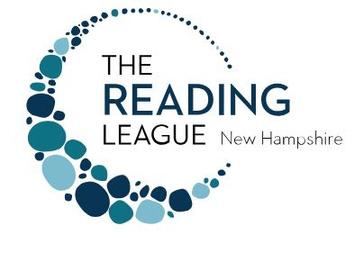




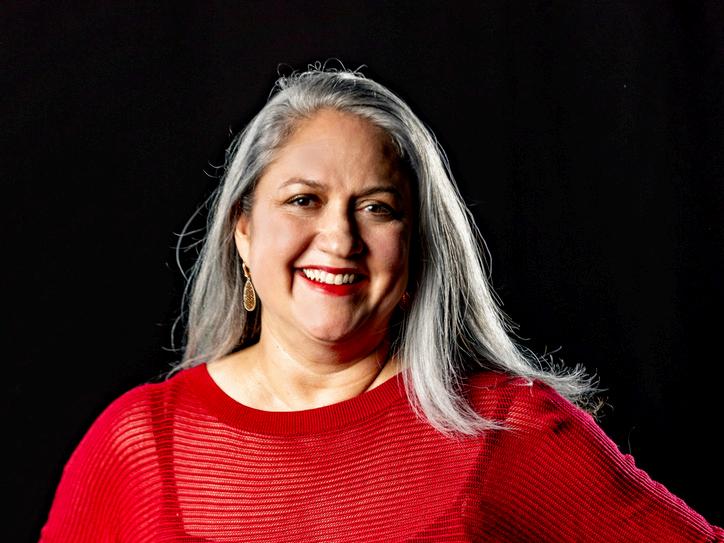
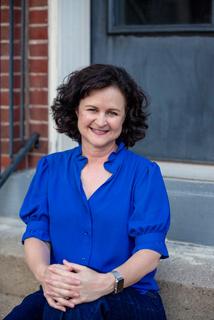
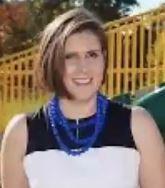



Dr.Carol Tolman Dr. Tolman draws on over 25 years of experience in public school systems, including 13 years spent designing and implementing an innovative reading clinic and academic support collaborative for high school students in Keene, New Hampshire. Awarded a doctorate in educational psychology with a focus on literacy, she continues to spearhead many successful, long-term literacy initiatives nationally and internationally in her work within the United States, Australia, China, and South Africa. Carol is the author of the Perspectives articles, “Working Smarter, Not Harder: What Teachers of Reading Need to Know and Be Able to Teach,” and “The Relationship Between Teacher Knowledge and Effective RTI: When We Know Better, We Do Better.” Dr. Tolman most recently authored chapters on phonics and advanced word study in the text, “Fundamentals of Literacy Instruction and Assessment.” You may know Dr. Tolman as co-author and lead trainer of LETRS, 3rd ed., with the esteemed Dr. Louisa Moats. Along with Heidi Zollman, Dr. Tolman is copresident of The Reading League NH, proud co-sponsors of today’s event. With her many roles as wife, mother, farmer, teacher, and author, Dr. Tolman most cherishes here time here in NH. Carol’s work supporting NH literacy stakeholders is truly her ‘labor of love’ and further supports the truth in the saying, ‘There is no place like home!’ Please join me in welcoming Dr. Carol Tolman.
Dr. Marisa Ramirez Stukey is the Senior Director of Research at the Center for the Collaborative Classroom. She received her Ph.D. in Curriculum and Instruction with an emphasis in teacher education and professional learning and a Master’s Degree in Reading Education, both from the University of Florida. She is a Nationally Board Certified Teacher with over fifteen years of experience teaching in both elementary and higher education contexts, instructional coaching, and professional learning systems development. Her research interests focus on early reading instruction and designing literacy professional learning. She has consulted with numerous school districts in developing change models and collaborative professional learning structures, particularly to shift literacy instruction. Marisa is the co-author of the book Professional Learning Redefined published by Corwin Press.
Dr. Stephanie Stollar is passionate about using MTSS as the framework for helping all students become skilled readers. She’s the founder of the Reading Science Academy, an online community where over a thousand educators support each other to improve results in their schools. Dr. Stollar also advises the next generation of education policy leaders in her role as an assistant professor at Mount St. Joseph University. She served as a Vice President at Acadience Learning, provided training and consultation to hundreds of school districts, worked as an Assistant Professor of School Psychology, and as a School Psychologist. Dr. Stollar believes that by supporting all educators, high achievement is possible for every student.
Dr. Kate McCaffery has taught in New Hampshire for 16 years as a public school elementary teacher. She also worked for 7 years in a clinical setting with K-12 students using evidence-based literacy instruction and data informed decision making. She obtained her Bachelor’s and Master’s degrees from the University of New Hampshire and has earned her Doctorate at Northeastern University. She is presently an English Language Arts Consultant, and Reading and Writing Specialist for the NH Department of Education
Dr. Leslie Laud, supports schools nationally with strengthening their writing instruction. She currently teaches writing in an afterschool writing program and coaches in several large districts. She holds a doctorate from Columbia University, and teaches there as well. She has led large federally funded research studies, publishes empirical studies in peer-reviewed journals and presents frequently at national conferences. She also continues to teach because that is where she finds her greatest joy. She is also a newly avid gardener.
Stephney Gonzalez, Ph.D. serves as Director of State Partnerships for the non-profit organization, HILL forLiteracy. Dr. Gonzalez received her doctorate from St. John’s University with a focus in literacy leadership. Her dissertation research examined factors supportive of school leadership teams effectively implementing multi-tiered systems of support. Since 2013, Dr. Gonzalez has worked with CT districts, schools, and educators to build multi-tiered systems of support for literacy through the CT K-3 Literacy Initiative and CT Literacy Model in collaboration with the CT State Department of Education. She also serves an adjunct professor at Fitchburg State University where she teaches courses in specialized reading approaches and early literacy development. Prior to this work, Dr.Gonzalez served as a publicschool teacher and is licensed in Elementary Education and Remedial Reading. She is committed to supporting schools to build the best possible systems for literacy education in pursuit of equitable opportunities for all children they serve.
Liz Cannon is currently the Director of Curriculum and Accountabiliy (K-12) in SAU 39, NH. She was the recipientof the 2022-23 Christa McAuliffe Sabbatical. During this time, she traveled throughout New Hampshire to support districts and educators in implementing evidence-based literacy practices. Liz is also the creator and owner of Literacy Leaders, NH, through which she provides literacy consulting assessment, and tutoring,, She has extensive training in structured literacy practices and is currently working toward her Ed.D. in Educational Leaership.

Keynote
It’s All About Language! Refining Instructional Practices for Increased Literacy Rates
Dr. Carol Tolman
Salon ABC (The Ballroom)
8:40 AM - Introductions 8:45 AM - 9:30 AM - Keynote ROOM (Capacity) Speaker
SALON ABC (380)
C. Tolman WEBSTER ROOM (120)
S. Stollar
Session 1
9:40 AM10:40 AM K-2
Digging Deeper via Misspelling Analysis: Implications for Instruction
Session 2
10:50 AM11:50 AM 3-5
Digging Deeper via Misspelling Analysis: Implications for Instruction
for Reading Improvement
ROOM (80)
L. Laud
Evidence-Based Writing Instruction Pay Close Attention
Tier I Instruction for Risk Reduction
Evidence-Based Writing Instruction.
Oral Language Using EvidenceBased Practices with Young Writers
Session 3
1:00 PM2:00 PM 6-8
Digging Deeper via Misspelling Analysis: Implications for Instruction
for Reading Improvement
ROOM (60)
S. Gonzalez MERRIMACK ROOM (60)
M. RamierzStukey
Structured Literacy Practices
Deepening the Science of Reading Through the Science of Learning for our Youngest Learners
ROOM (50)
L.Cannon & K. McCaffrey
Implementing Structured Literacy - A Systems Approach
Implementing Structured Literacy Practices 3-5
Deepening the Science of Reading Through the Science of Learning. K-8 From Screening to Success: Effective Literacy Strategies for Supporting Students with Dyslexia 11:50 AM- 12:50 PM Pre Function Area and Salon ABC
Evidence-Based Writing Instruction Introduction to ThinkSRSD
Session 4 2:15 PM - 3:00 PM Literacy in Action: Your Questions Answered April 1,
Structured Literacy Practices 6-8
Deepening the Science of Reading Through the Science of Learning. K-4 From Sounds to Sentences: Mastering Fluency in Early Readers

It’s All About Language! Refining Instructional Practices for Increased
This keynote session is a call to action for all stakeholders supporting NH literacy rates. Arguably the most important topic in education, Dr. Tolman will review and deepen the science behind how students read and write, tying research to impactful instructional practices. A preview of each breakout session ties together the importance of teaching all layers of language, leading to accuracy and automaticity in listening, speaking, reading, and writing

M.
While the science of reading tells us what is essential for building a reader, the science of learning tells us the conditions that are necessary for learning to thrive and last Participants will engage in learning about the evidence base for the Science of Learning and connecting those principles to the components of the Reading Rope. Professional readings and discussions will ground the session focused on our K-2 learners. Come to learn more about how combining the science of learning with the science of reading has the potential to meet the needs of the whole child and support the development of independent learners.
Join Dr. Tolman as she discusses both the ‘why’ and the ‘how’ behind direct instruction and misspelling analysis, with a focus on the importance of teaching with deep lexical quality for all layers of language
Learn easy to apply close reading strategies that help students make deeper meanings of trade books, classics and relevant paired texts so they can generate fresh insights when they write about them Lead discussions in ways that invigorate deep thinking, the basis of strong writing. Additionally, teach scaffolds and structures for navigating the writing process in collaborative, personalized ways, that won’t curb voice. Help your students become more strategic, empowered, independent and goal-oriented writers In this session, you will be active learners experiencing a close reading protocol in order to walk away and teach it tomorrow!
This session explains the critical role that structured literacy instruction plays in helping children learn to read and the four key features to a Structured Literacy approach. It will also give an overview of how Structured Literacy is situated within a Multi-Tiered System of Support for Reading (MTSS-R) and provide examples of how to implement Structured Literacy for foundational reading skills instruction in grades 6-8. Free resources will be shared with participants to support implementation.
K. McCaffery
This session is designed to equip school leaders with practical strategies for creating effective systems and structures to implement structured literacy practices within their schools Through a combination of focus groups and collaborative discussions, participants will explore solutions to everyday challenges, including curriculum alignment, pacing, schedules, and professional development. Attendees will leave with actionable tools, resources, and a clear roadmap for developing a sustainable, evidence-based, data-driven literacy program that supports the diverse needs of all learners.
MTSS provides a framework for implementing the science of reading. This session will outline the MTSS model for reading improvement in elementary schools. Best practices will be shared for connecting screening and instruction, specifically using universal screening data for planning literacy improvement This session will focus on using explicit vocabulary instruction in all 3-5 classrooms and the characteristics of effective targeted reading intervention.
Deepening the Science of Reading Through the Science of Learning (3-5) M. Ramirez-Stukey.
While the science of reading tells us what is essential for building a reader, the science of learning tells us the conditions that are necessary for learning to thrive and last. Participants will engage in learning about the evidence base for the Science of Learning and connecting those principles to the components of the Reading Rope, specifically for our middle school learners. Professional readings and discussions will ground the session focused on supporting our readers to more sophisticated texts and tasks, especially content area texts. Come to learn more about how combining the science of learning with the science of reading has the potential to meet the needs of the whole child and support the development of independent learners.
Join Dr. Tolman as she discusses both the ‘why’ and the ‘how’ behind direct instruction and misspelling analysis, with a focus on the importance of teaching with deep lexical quality for all layers of language
Learn an evidenced-based reading, writing and structured discussion instructional framework that is easy to learn and easy to use This session will focus on the early grades and sentence level writing The overarching thinkSRSD framework offers a step-by-step guide to help students navigate reading texts and using the writing process. The sub skills taught within this framework, including an emphasis on sentence construction, support the entire writing process from the planning stage of analyzing text and note taking, to sentence development, syntax, and vocabulary enrichment. The hallmark of this approach (thinkSRSD+Sentences) is the focus on teaching students the social and emotional skills needed to undergird the process such as positive selfinstruction, goal setting, and self-monitoring By using these self-regulated strategies, students internalize the method and grow in writing skills to become increasingly independent writers and thinkers. These strategies can be integrated into any curriculum You will walk away with ideas you can use tomorrow, and when you do, you will see an immediate lift in your students’ writing ability and joy when composing.
This session explains the critical role that structured literacy instruction plays in helping children learn to read and the four key features to a Structured Literacy approach. It will also give an overview of how Structured Literacy is situated within a Multi-Tiered System of Support for Reading (MTSS-R) and provide examples of how to implement Structured Literacy for foundational reading skills instruction in grades K-2. Free resources will be shared with participants to support implementation
This session will showcase the effective approaches, tools, and methods, providing educators with evidencebased strategies for implementing comprehensive, proactive interventions. Attendees will leave with practical resources and a clear framework for aligning their practices with state guidelines that help support early literacy development for all students.
MTSS provides a framework for implementing the science of reading. This session will outline the MTSS model for reading improvement in elementary schools Best practices will be shared for connecting screening and instruction, specifically using universal screening data for planning literacy improvement.

This session will focus on using repeated reading in all 6-8 classrooms and the characteristics of effective targeted reading intervention.
While the science of reading tells us what is essential for building a reader, the science of learning tells us the conditions that are necessary for learning to thrive and last. Participants will engage in learning about the evidence base for the Science of Learning and connecting those principles to the components of the Reading Rope, specifically for our middle school learners. Professional readings and discussions will ground the session focused on supporting our readers to more sophisticated texts and tasks, especially content area texts. Come to learn more about how combining the science of learning with the science of reading has the potential to meet the needs of the whole child and support the development of independent learners.
Join Dr. Tolman as she discusses both the ‘why’ and the ‘how’ behind direct instruction and misspelling analysis with a focus on the importance of morphology and etymology.
Discover easy-to-implement and time-efficient ways to revolutionize how you teach writing, all based in latest empirical studies and brain research. Learn an instructional framework that helps students generate fresh insights when they write about what they learn. Lead discussions in ways that invigorate close reading and deep thinking about texts, the basis of strong writing. Help your students become more strategic, independent and goal-oriented writers, and thinkers. Walk away with simple to use, practical, and powerful strategies with free resources that will help your students become more mindful, engaged and action-oriented writers.
Fluency is often misunderstood, neglected, or improperly implemented in classrooms. It requires a balance of three key components: accuracy, automaticity, and prosody. In this session, we will explore current research on fluency, share practical activities, and provide ready-to-use materials that can be applied across Tier 1, Tier 2, and Tier 3 instruction. Participants will engage in hands-on strategies designed to build fluency in the early grades through targeted practice with sounds, words, phrases, passages, and ways to chart student progress.
This session explains the critical role that structured literacy instruction plays in helping children learn to read and the four key features to a Structured Literacy approach. It will also give an overview of how Structured Literacy is situated within a Multi-Tiered System of Support for Reading (MTSS-R) and provide examples of how to implement Structured Literacy for foundational reading skills instruction in grades 3-5. Free resources will be shared with participants to support implementation
MTSS provides a framework for implementing the science of reading. This session will outline the MTSS model for reading improvement in elementary schools. Best practices will be shared for connecting screening and instruction, specifically using universal screening data for planning literacy improvement. This session will focus on preventing reading difficulties by using explicit phonemic awareness, phonics, and spelling instruction in all K-2 classrooms and the characteristics of effective targeted reading intervention.
This dynamic session is a moderated discussion with literacy experts, our presenters, as we explore strategies, challenges, and opportunities to inspire a love for reading. writing, and learning.
Throughout the day, there will be opportunities for you to submit questions both electronically and by hand. During the Q&A, the,presenters from the day will answer your most pressing questions, offering insights, practical advice, and innovative ideas to help you enhance your literacy instruction. Don't miss this unique opportunity to engage directly with these thought leaders and elevate your knowledge and enhance your conference experience.


Photographs will be taken throughout the K-8 Literacy Summit. These will be used by NHASCD in our electronic newsletter, on our website, and on social media Parking: There is parking in front of the Grappone Conference Center and across the street from the Courtyard Marriott.
Registration will open at 8:00 AM in the Pre-Function Area of the Grappone. A Continental Breakfast and Buffet Lunch will be provided as part of your registration fee. If you have dietary restrictions, please contact Jan Yost at nhascd@nhascd.org.
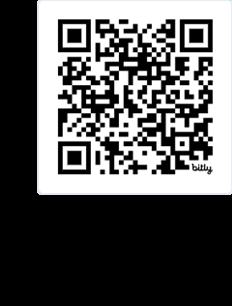
There will be sheets with a link and QR Code to access your Certificate of Attendance as well as a link for a Feedback Survey The survey will open at 2:45 PM There are no sign-ups for breakout sessions Please plan ahead Once a session room is filled, no one will gain entrance. The doors will be closed.
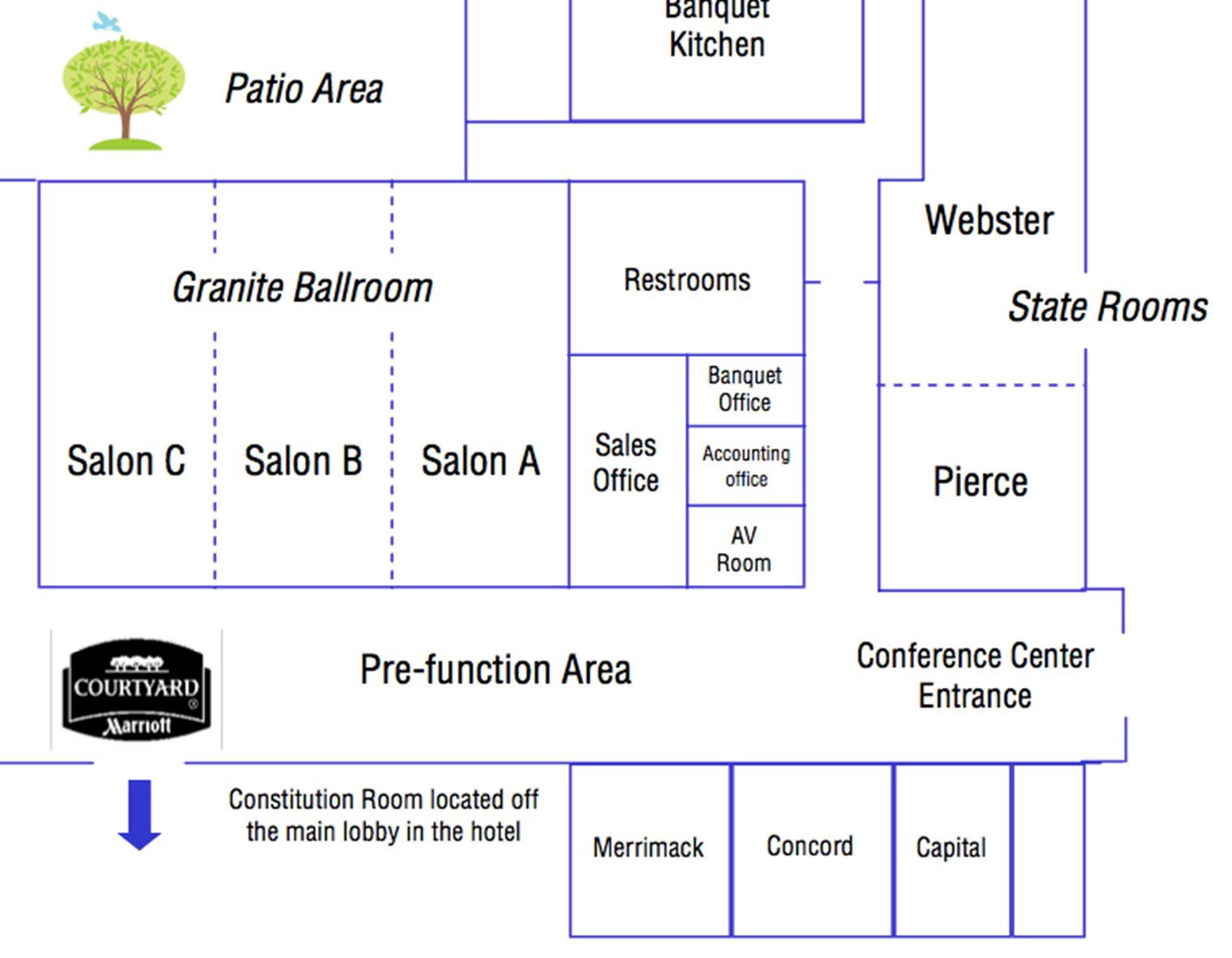
Add




